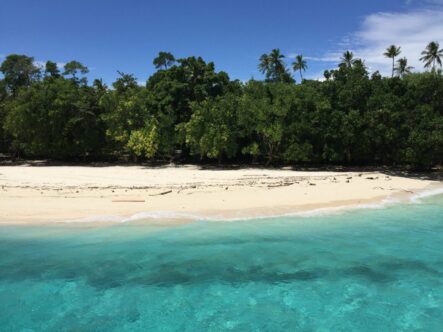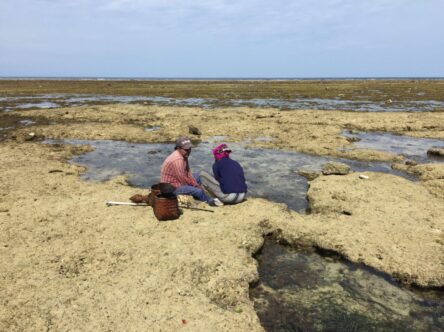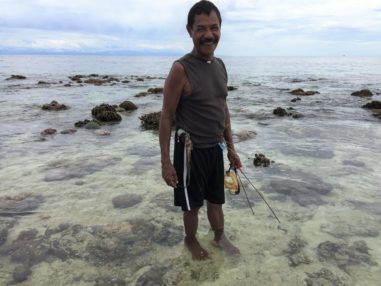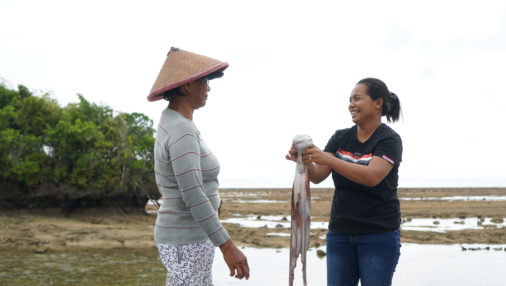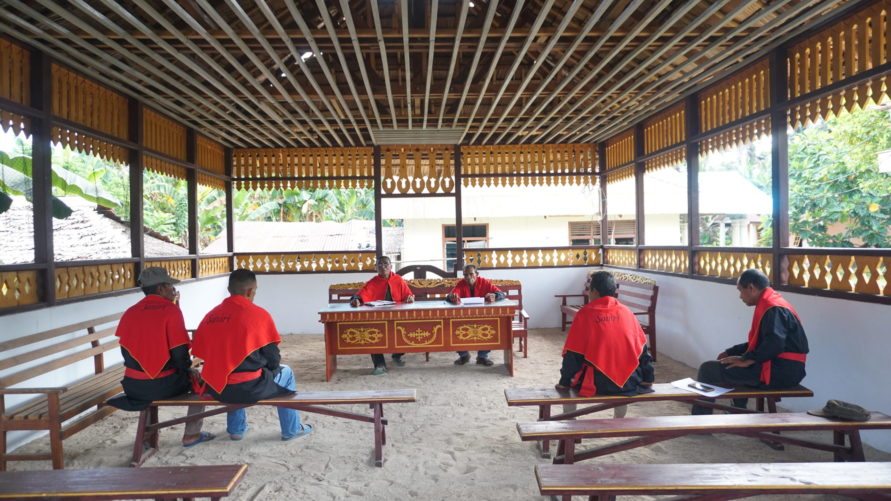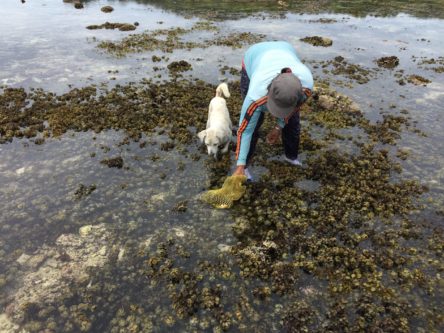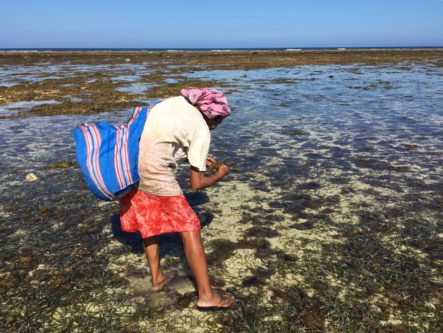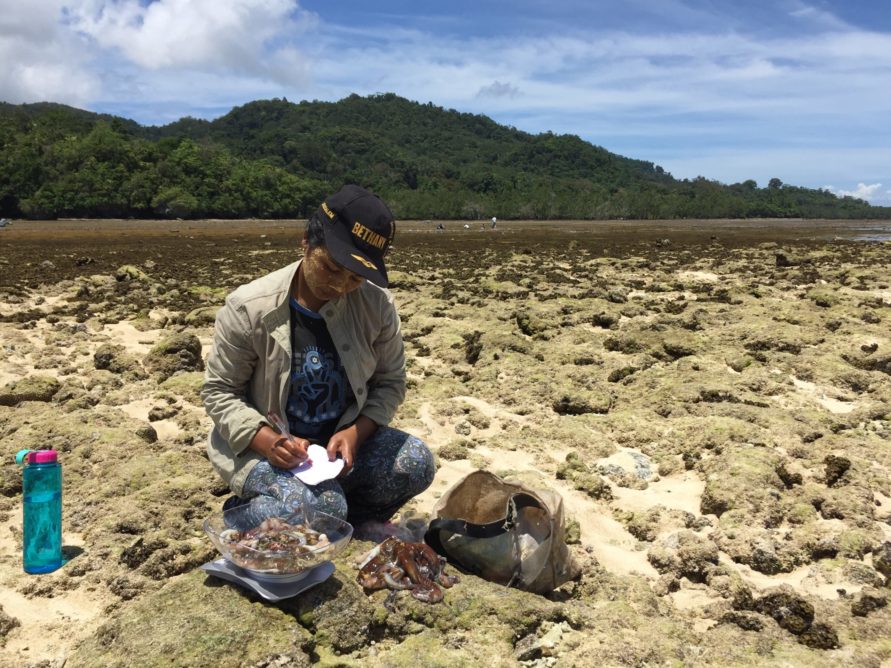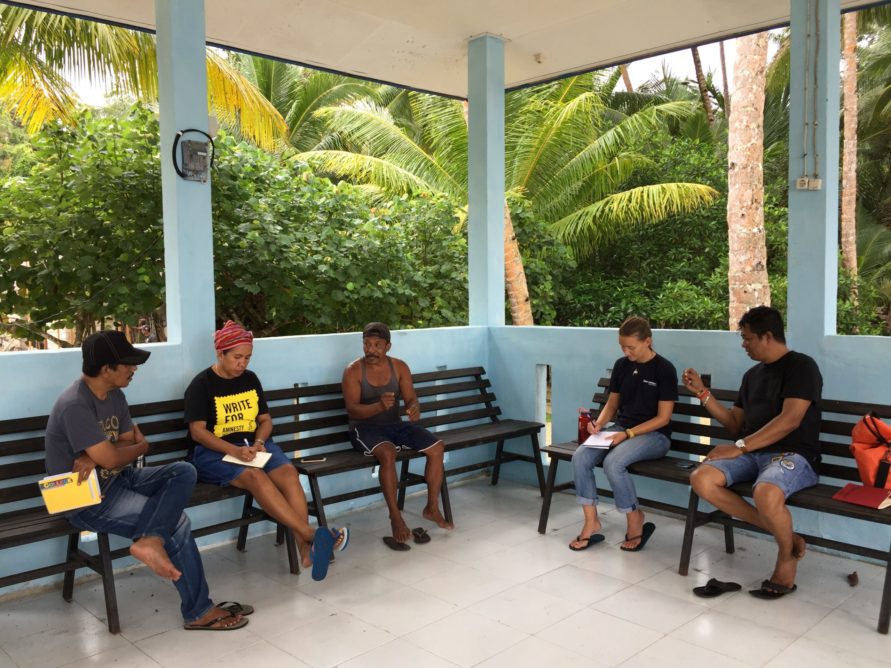This is the final piece in a three-part series on the use of customary laws known locally as sasi that seek to harness a more sustainable relationship between man and nature. Sasi is a set of customary laws currently used by some communities in the Maluku archipelago in Indonesia to help rebuild their fisheries. Read part 1 and part 2.
It took several meetings with members of the community in Maluku to grasp the use of customs, also known as sasi. The customs are yet to be applied in some areas, such as Akoon in Nusa Laut island, so we engaged community Elder Eliza Kissya from Haruku to promote sasi.
We hoped that through Elder Kissya, we could advocate for the community in Maluku to apply sasi by focusing on community-led management of octopus, a species with a short lifespan that is highly relied upon by the community. To support our efforts, we focused on sustainable octopus fishery management plans developed through partnerships with the community and our partner, Yayasan Baileo.
Previous meetings involving Elder Kissya had led communities to introduce laws in daily fisheries management with ease. We noticed that the community was willing to adopt a tradition if the information comes from a peer like Elder Kissya, who is the head of the Kewang, a group that helps communities to implement sasi, protect natural resources, and conduct patrols on community-controlled fishing grounds.
The similarity between the Akoon and Haruku island communities was a factor that supported our work. In Haruku, fishers caught Lompa fish only for protein, similar to the Akoon community that relies on octopus to eat rather than sell. The focus on catching a species for food made it easier to promote and introduce sasi than in other places where people caught fish for sale, so they were more resistant to a custom that would limit their activities.
Since communities from Haruku where sasi is applied and Akoon where we are working with the community to apply sasi are similar, we were hopeful that we could advocate for the application for the custom through peer learning. To ensure success and easy implementation of sasi, we are keen to get the support of the village government led by the customary leader, the Raja (King).
Also, adopting sasi in Akoon would be easier because a neighbouring community Nusa Laut is already using it to conserve seaweed through a Kewang that manages controlled, temporary seaweed closures. People from the Nusa Laut community share their experiences through peer-to-peer learning and exchanges. Establishing a solid foundation for using sasi requires communities to collect data, quickly analyse it, and apply their knowledge to daily fisheries management.
As we advocate for the application of sasi, we aim to support communities by providing training on participatory data collection and monitoring, enabling them to know the state of their octopus fishery and how best to manage it. Through our partner Yayasan Baileo, we will carry out participatory mapping, ecological surveys of local coral reefs and fish, and surveys of mangroves and seagrass habitats with communities in Akoon.
Our goal is to develop ways to revive customary community-led marine resource management to improve the application of sasi across the Maluku Archipelago in Indonesia. Recent success includes the community in Akoon Village establishing their first temporary octopus fishery closure to incorporate sasi.
Through our partnership with Yayasan Baileo, support from the district government, and increased public participation, we will help communities rebuild their fisheries while conserving the environment.
Taking good care of the environment is an investment for heaven!” – Eliza Kissya, an elder from Haruku Island and head of the Kewang.


